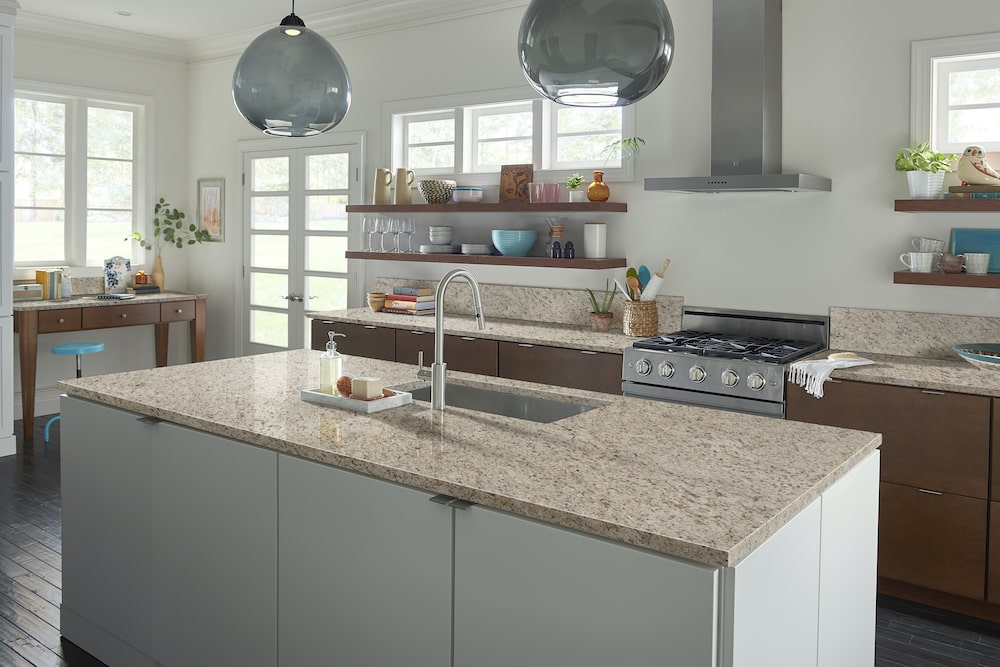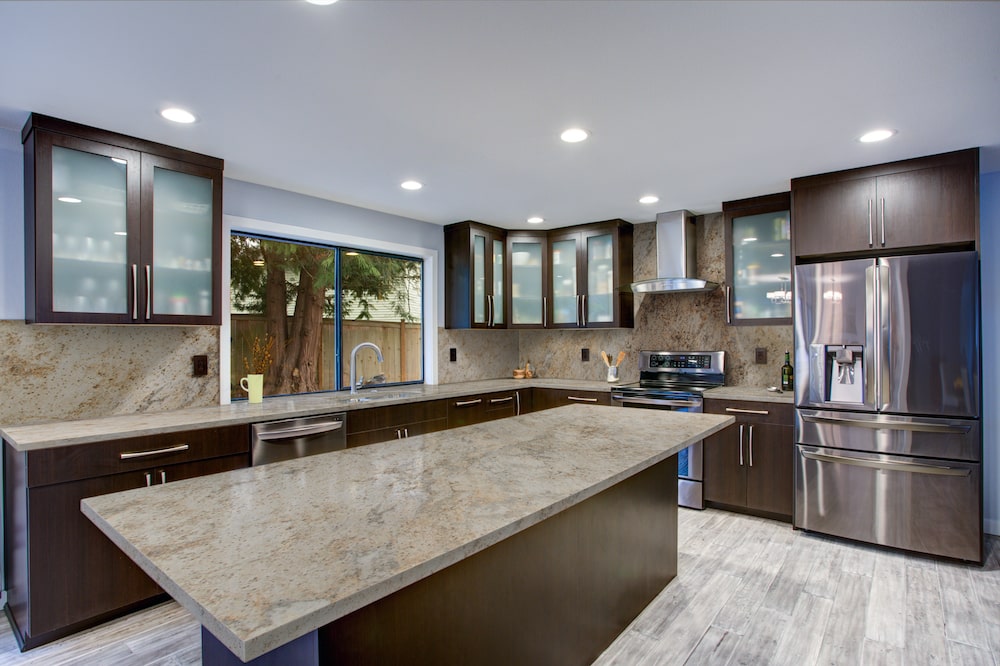Your Granite Countertop Health Concerns Answered
January 19, 2017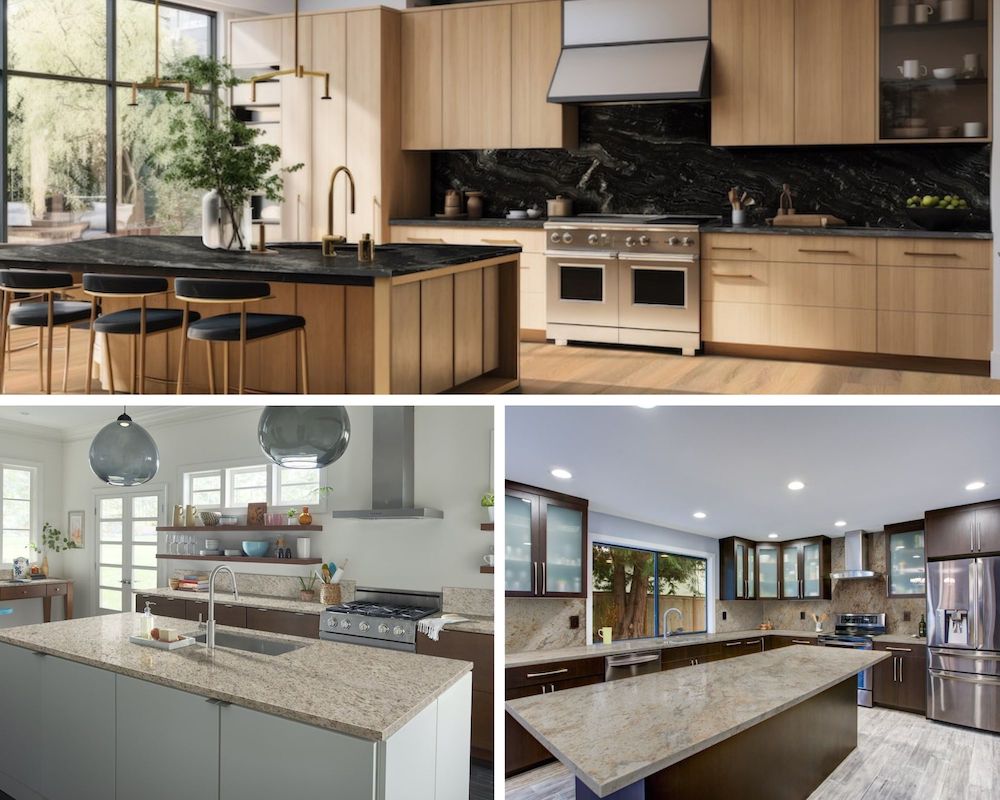
The beauty of natural granite lies in its vast array of colors and patterns, created from the presence of elements and minerals in the rock. This is perfectly illustrated by the contrast of the vivid veining and coloration of Fusion granite by MSI, versus the simple, monochromatic palette and stippled pattern of Azul Platino Granite, below.
However, although granite countertops draw their beauty from the natural world, they can also contain naturally occurring radioactive elements. These elements, such as uranium and radium, break down over time, and can emit radon gas. This scientific reality has caused worry for some homeowners, who wonder if granite installation can compromise their families’ health and safety.
But although it may sound alarming, numerous studies have shown that there is no real cause for concern. Granite is still very much a safe and popular choice for your home. Allow us to explain more fully before you continue your search for the perfect countertop surface.
You may still be wondering, "What is radon and why is it a health concern?" You cannot see, smell, or taste radon. It is a gaseous radioactive element that is found naturally in the environment. Radon can be found in soil, rock, air, and even water. When materials such as granite are mined from the earth they naturally contain these radioactive elements, and may occasionally emit radon gas. Over years of exposure, radon can cause cancer, the primary health concern with this gas.
So, if granite can emit radioactive gas, why would anyone want it in their home? Well the truth is, more radon is emitted from the soil outside your home than will ever come from your granite countertops. Radon is in the environment all around us. Homes are also generally ventilated well enough to significantly dilute any radon emissions.
The United States Environmental Protection Agency (EPA) and other experts have consistently confirmed that granite is safe for indoor applications.
In fact, in a recent study by Consumer Reports, none of the granite samples tested were found to emit any radon at all. Other building materials may emit radon, such as soapstone, brick, or concrete, but as with granite, these materials are unlikely to increase radon levels in the home to levels above those already present in nature.
As one of the foremost purveyors of granite and stone in the industry, MSI has taken a leading role in educating consumers on the truth about granite. For more information on granite and radon emissions, check out MSI's page dedicated to explaining the safety of granite: /new-products/radon.aspx.
Once you have your fill of granite knowledge and your concerns are addressed, take a look at the countertop visualizer tool from MSI to pick out the perfect granite slab for your home. Whether you choose a white granite countertop like the elegant White Supreme, or black granite such as the stunning Agatha Black from MSI, the selections are endless and environmentally sound.
If you are still concerned about radiation and granite, you may purchase a test kit that will test levels of radon. Although not specifically for countertops, this kit will let you know the radon levels present in your house. However, when all is said and done, you can rest assured granite is completely safe for use in any home.
Have more questions about using granite in your home? Chat with us online now for personalized service and answers to your questions, visit a nearby MSI showroom or contact a local authorized MSI retailer today.
Read More about Granite Countertops
Do Granite Countertops Increase the Resale Value of Your Home?
Going Green: Granite's Environmental Footprint
Take the Mystery Out of Choosing Granite Countertop Edges
Not Just for Countertops: Natural Granite Slab Design Inspirations
Durable, Beautiful & Natural Granite Countertops
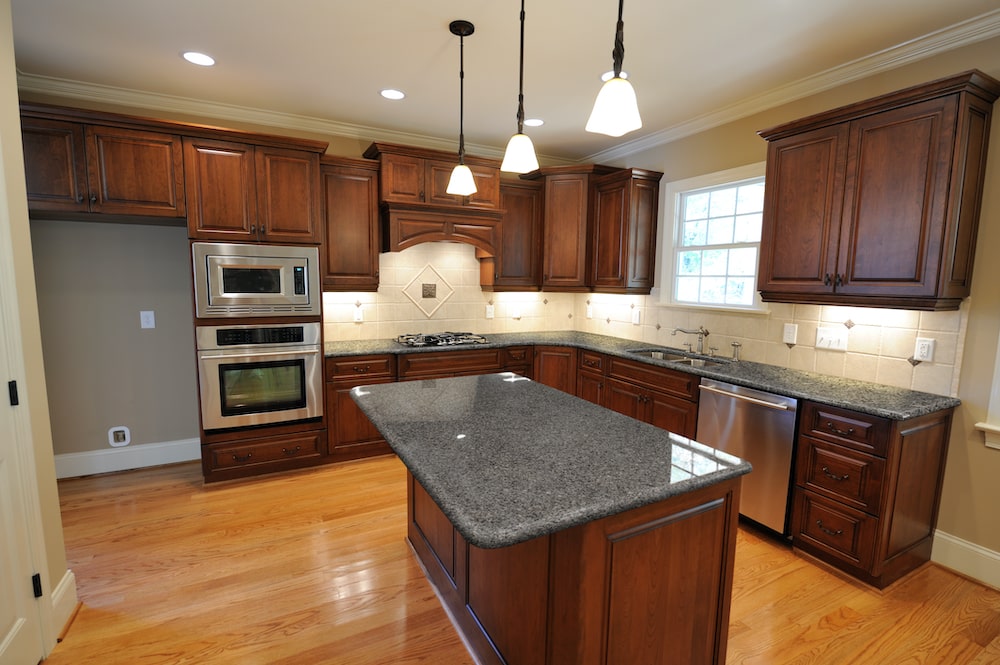 Azul Platino Granite
Azul Platino Granite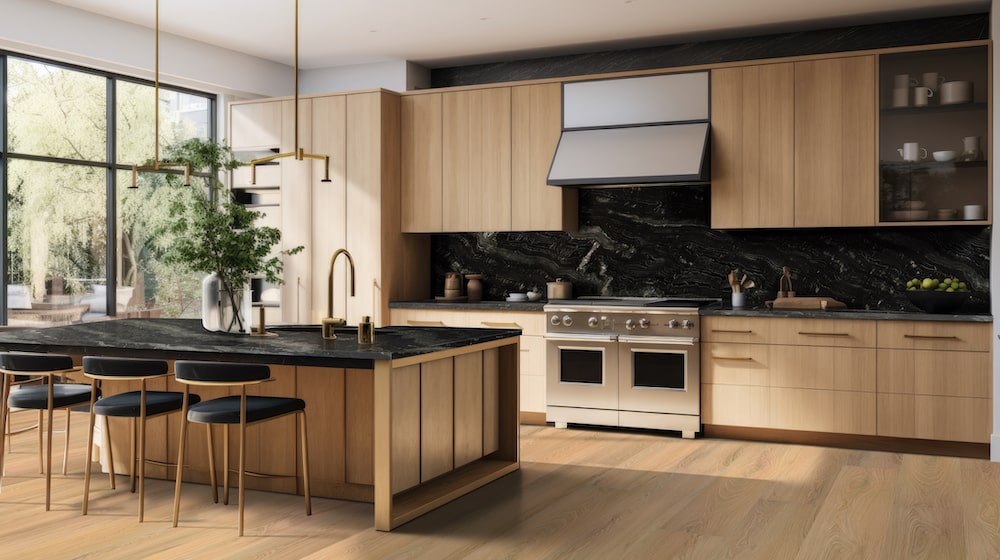 Agatha Black Granite
Agatha Black Granite